In Idaho, Extremists Have Created a Culture of Fear Around Pregnancy
Christian nationalists are taking over the state government, and abortion access is only their first target.
This reporting was supported by the International Women’s Media Foundation’s Reproductive Rights Reporting Fund.
It is part one on the reproductive health crisis and Christian nationalism in Idaho. Check out the full three-part series here.
When I walk into Liyah Babayan’s boutique Ooh La La! in Twin Falls, Idaho on Halloween, a customer is peppering her with questions about the history and formation of the Soviet Union. Babayan manages to answer them all while deftly weaving in an explanation of how the store’s consignment process works. “And where was Prussia?” I hear the woman ask as I wander through the shop, glancing through racks of gowns, jeans, and sweaters and looking at the family photos and mementos that decorate the walls.
Babayan’s ten-month-old scoots around in a baby walker, cooing and grinning at me when I pass, watched carefully by an older sibling.
Babayan and her family arrived in Twin Falls as refugees in 1992. Armenian Christians living in Baku, the capital of Azerbaijan, they survived violent ethnic cleansing there and fled to Armenia. But in their ancestral homeland, they were homeless. So they made their way to the United States and settled in Twin Falls, the hub community of Idaho’s Magic Valley. It’s a rich agricultural region that’s also home to the dramatic beauty of the Snake River Canyon and its many waterfalls. Babayan had just turned ten years old.
As a survivor of ethnic and religious persecution, perhaps it’s no wonder that Babayan is outspoken about her views. “Do not enter if you have any symptoms of: COVID-19, racism, homophobia, xenophobia,” a sign at her shop’s entrance reads. But last year, when Babayan ran unsuccessfully for state legislature, there was one thing she didn’t talk about: her pregnancy.
Babayan was pregnant from March through November 2022—campaign season. This also means she was pregnant when the Supreme Court’s draft opinion overturning Roe v. Wade leaked in May, pregnant when the decision was finalized in June, and pregnant in August, when Idaho became one of the first states to ban abortion outright.
In fact, there are multiple abortion bans in effect in Idaho. After Roe fell, the first to take effect was a six-week ban in the style of Texas’ SB 8, which empowered civilians to enforce it by filing “bounty hunter” lawsuits against doctors. But Idaho’s version did more than that: It included criminal penalties and doubled the civil penalties from $10,000 to a minimum of $20,000. The law is also written in such a way that a rapist wouldn’t be able to sue a doctor for providing an abortion to his victim, but one of his immediate family members could.
Then, days later, Idaho’s total abortion ban took effect. The law has such narrow exceptions that the federal government sued, arguing it violates the Emergency Medical Treatment and Active Labor Act (EMTALA).
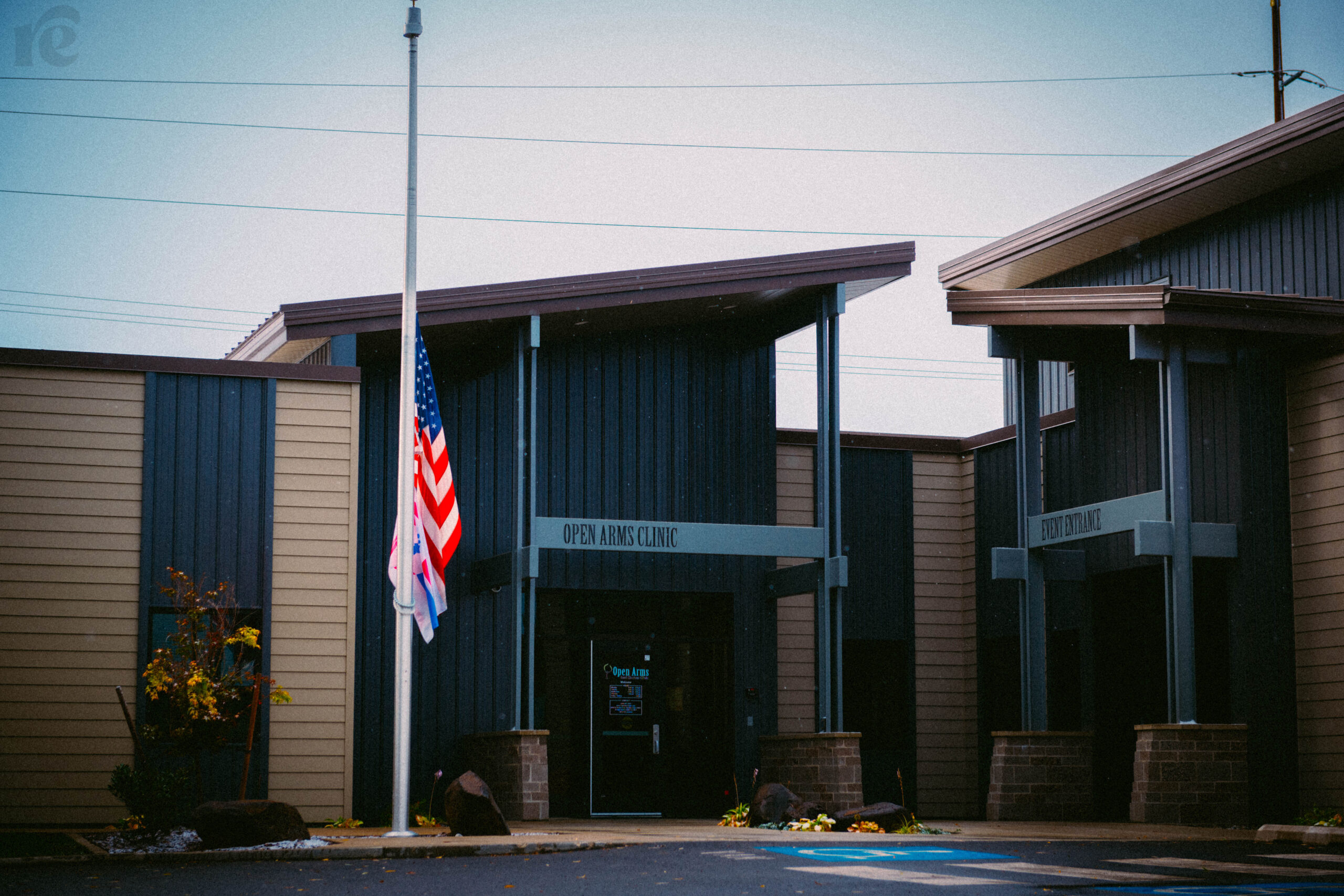
Babayan found out she was expecting a week after announcing her candidacy. She and her partner decided to keep the pregnancy quiet because she’d had several miscarriages in the past. If they were going to face another pregnancy loss, they wanted to navigate it in private—especially given the political climate.
“When I started seeing how strange and how extreme some of our legislators were in their comments and testimony around certain laws being passed in Idaho, my partner and I realized that staying private was also a safety measure for me,” Babayan said. “Hearing some of these radical proposals on how to track pregnant women in Idaho to ensure they’re not miscarrying or leaving the state … I’ve never felt that unsafe as a woman in the United States before.”
In the 2023 legislative session, Idaho lawmakers created the new crime of “abortion trafficking,” making it illegal to help a minor travel within the state to access care. They also dissolved the state’s maternal mortality review committee, rendering Idaho the only state without one, and voted against expanding postpartum Medicaid coverage.
Babayan wasn’t alone in feeling afraid. Fallout from these policies—and their proponents’ extremist rhetoric—has created a culture of fear in Idaho, not just around abortion, but around pregnancy and all its outcomes.
And while outsiders may see Idaho as a “red” state where voters are essentially getting what they asked for, many Idahoans—including self-identified conservatives—say that their current government doesn’t represent their values. But few are willing to speak out openly for fear of retaliation.
Idaho’s extremist history
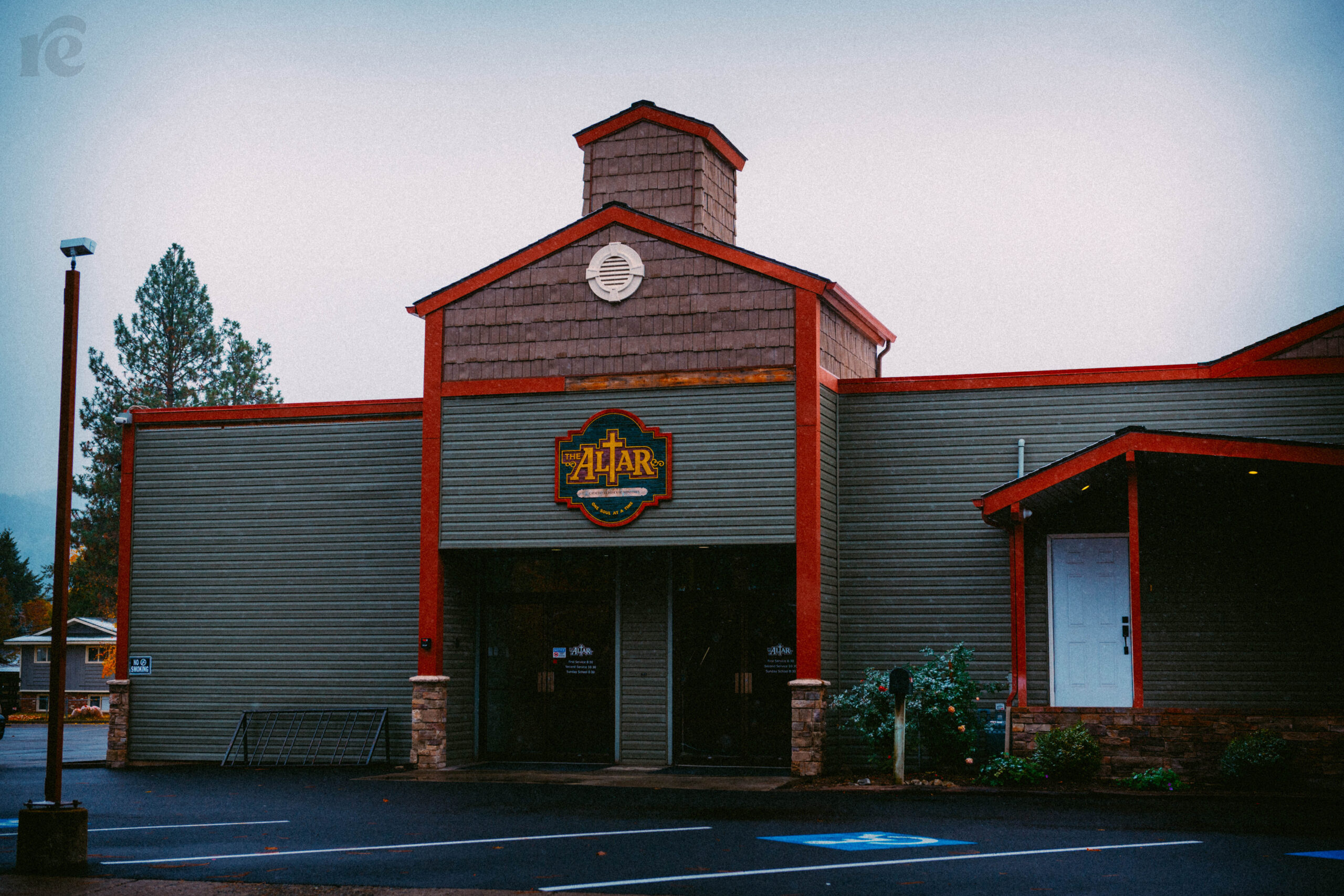
Depending on who you ask, the roots of extremism in Idaho either go back a few years, a few decades, or a few centuries.
Today, the state’s population is estimated to be over 92 percent white, a fact that in and of itself speaks to a long history of racism, starting with the displacement and slaughter of Indigenous people. This is true of every state, but Idaho in particular was home to some of the deadliest assaults carried out by the U.S. military during what are known as the American Indian Wars, a long series of attacks against Indigenous Americans spanning from 1622 to 1890.
During the Civil War, many white Southerners fled to Idaho, Oregon, and Washington in an attempt to re-establish the type of white supremacist system they feared losing in the South. Decades later, several Idaho towns forced out the Chinese immigrants who had settled there to work on the railroads and mine for gold. This created “sundown towns,” where people of color weren’t allowed. (Twin Falls was one of them.)
Perhaps because of this history, Idaho and its border states have remained an area of fascination for white supremacists. For example, Idaho was part of the Northwest Territorial Imperative, a white separatist idea popularized in the 1980s calling for the establishment of an all-white society in Idaho, Oregon, Washington, and, by some definitions, Wyoming and Montana.
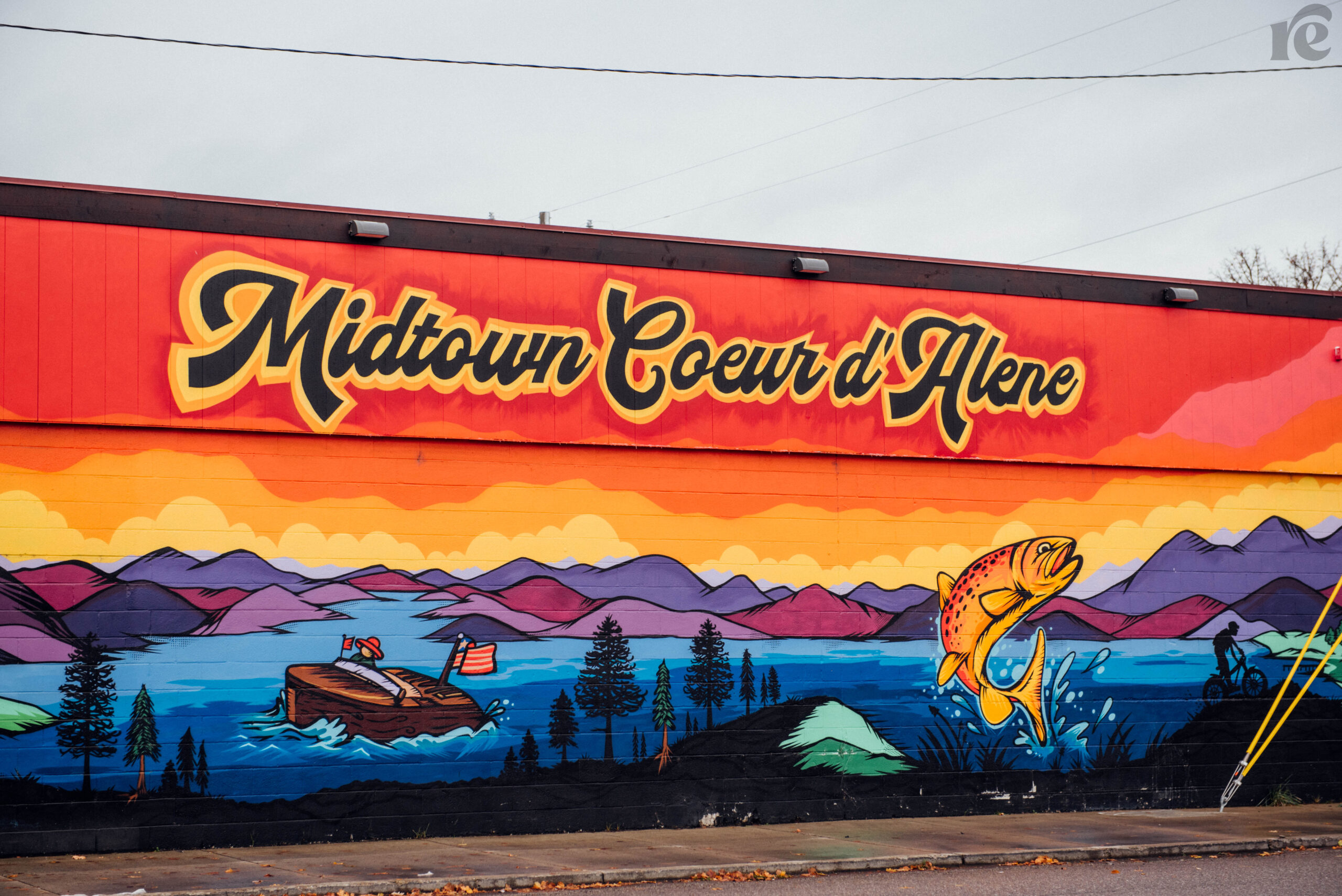
White supremacist Richard Butler was a proponent of this ideology. He built a compound for his group, the Aryan Nations, near North Idaho’s largest city, Coeur d’Alene, in the 1970s and hosted an annual “world congress” for white supremacists there starting in 1981.
The Northwest Imperative was also what attracted Randy Weaver to the area. The infamous 1992 standoff between Weaver and U.S. marshals at Ruby Ridge in the far northern reaches of Idaho, which resulted in the death of Weaver’s wife, son, a family dog, and a U.S. marshal, was a flashpoint in the development of the U.S. militia movement.
More recently, survivalist author James Wesley Rawles named Idaho—along with Wyoming, Montana, and the eastern parts of Washington and Oregon—the American Redoubt, a region where white Christian nationalists could establish their own theocratic society. He called for an intentional political migration to the area, and Idaho—particularly North Idaho—is its epicenter.
According to the Census Bureau, Idaho is the second-fastest growing state, bested only by Florida. The allure of the American Redoubt isn’t the sole factor driving that growth, but locals say a shift is apparent. Whereas for decades Idaho had been home to fringe extremists, the Christian nationalists now flocking to the state are doing so with an intentional plan to infiltrate government and shape policy.
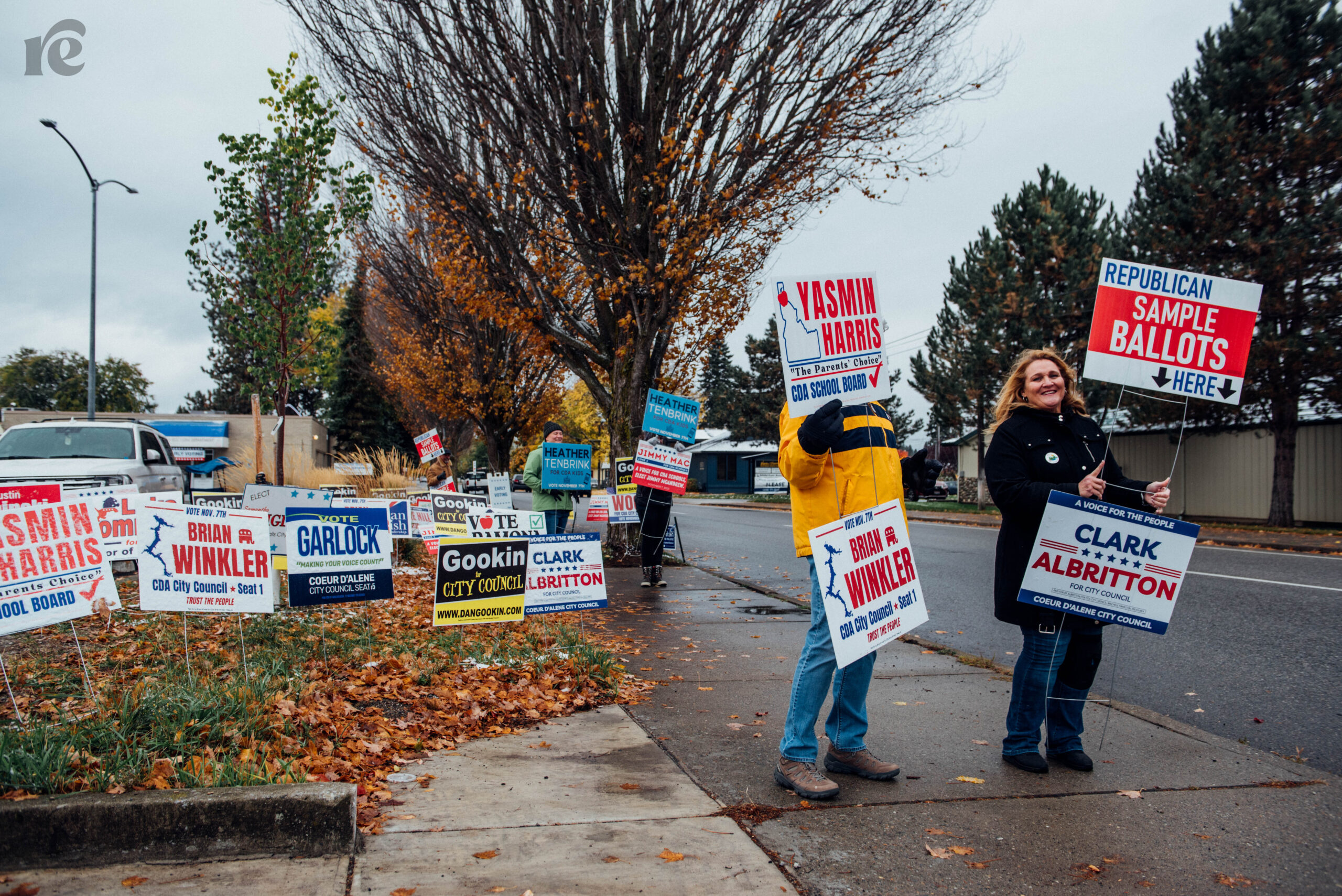
Their success has forced the Idaho Republican Party to lurch rightward, leading to rancor, infighting, and a culture of intimidation. And it’s no surprise that abortion bans are a centerpiece of this far-right policy agenda: Throughout history, one of the first steps fascist regimes take has always been limiting women’s rights and freedoms, especially with respect to reproductive choice, based on the idea that the primary role of women is to birth and raise future citizens of the all-powerful state.
It’s no coincidence, either, that amid a wave of anti-LGBTQ+ legislation in the United States, Idaho was the first state to actually enact several of these policies. Anyone whose existence challenges rigid, binary ideas about gender and traditional family is necessarily an enemy of Christian nationalism.
“Here in this boutique, we style people. This is supposed to be a very fun space,” Babayan said. “But now when women walk in, we recognize how quickly we’ve all become second-class citizens. And it’s only the beginning.”
Health care ‘is a house of a cards’
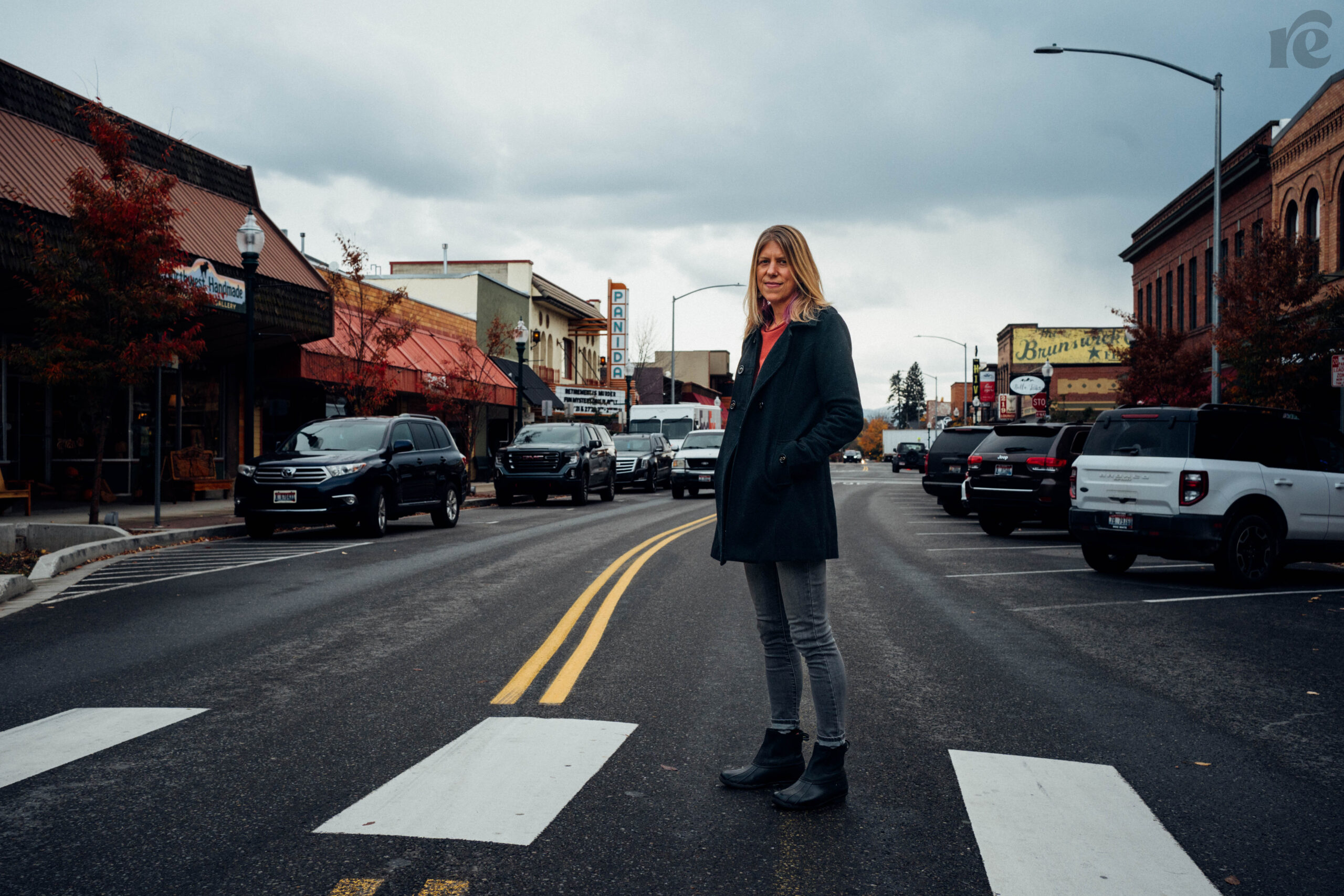
Sandpoint, the picturesque North Idaho town situated next to the largest of the region’s famed mountain lakes, has been in the news a lot this year. The maternity ward at its local hospital, Bonner General Health, shut down in May. Hospital administrators cited a number of factors, the “legal and political climate” being one.
It was the first labor and delivery ward in the state to shut down, and another quickly followed.
Last year, shortly before Idaho’s abortion bans went into effect, Hannah Vollmer had an ectopic pregnancy and had to have emergency surgery to treat it. She and her husband have lived in Sandpoint for nine years and are local business owners.
“My husband was actually really nervous about me talking about it publicly, because you never know what people’s beliefs are,” she said.
Soon after her ectopic pregnancy, Vollmer managed to get pregnant again. She was about a month away from her due date when Bonner General stopped delivering babies. Rumors of the closure had spread through town before the public announcement because a Bonner General nurse posted about it on Facebook. Even after the official announcement, no one could give Vollmer a straight answer as to when the shutdown would actually happen.
Vollmer had a cerclage, a procedure where the cervix is stitched shut to help prevent preterm birth. The stitches were removed, and she was told to prepare for the fact that she could go into labor at any time. This plunged her into an anxious race against time in the last few weeks of her pregnancy.
“I had to beg to get into a doctor down in Coeur d’Alene,” she said. That’s about an hour south of Sandpoint—without traffic.
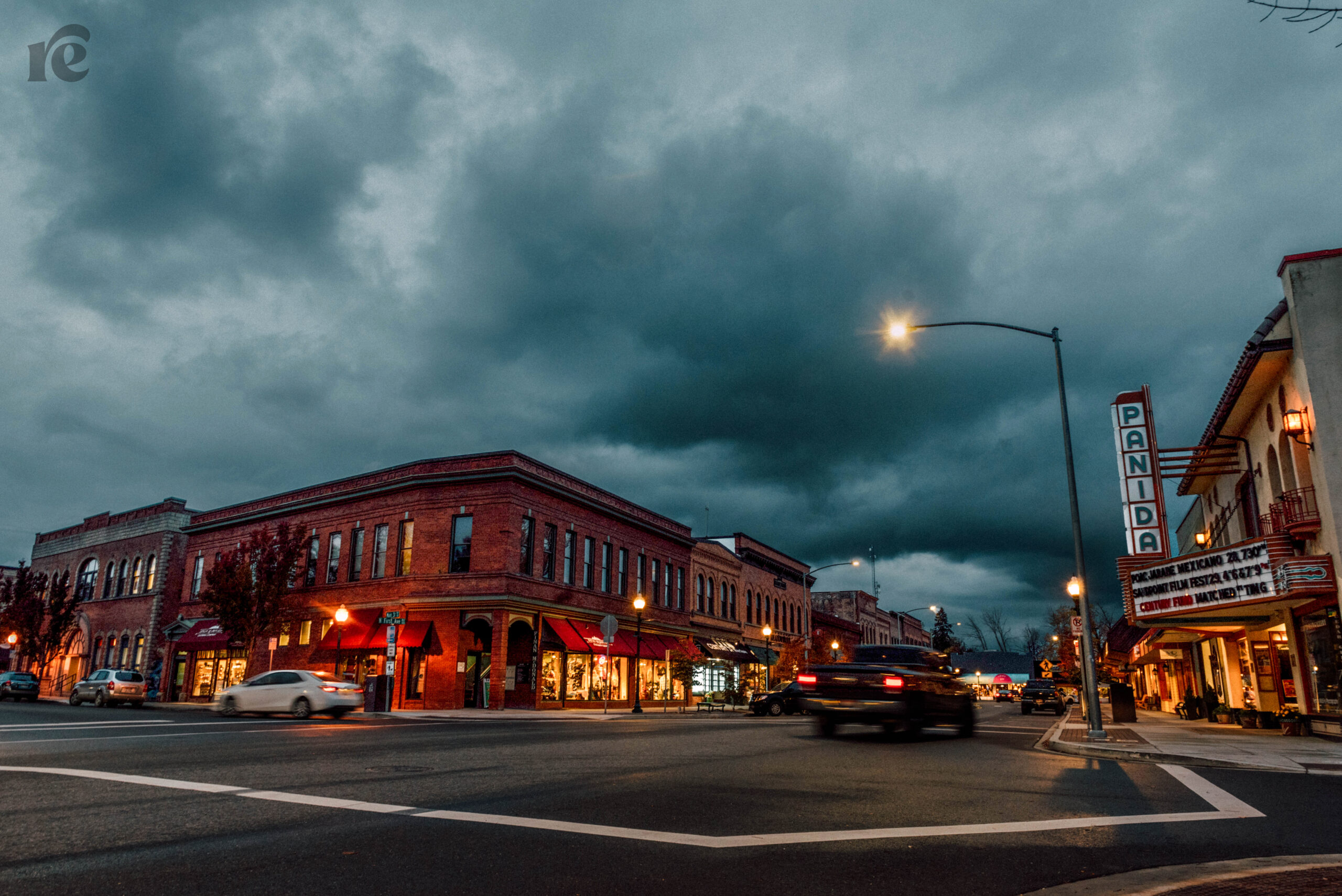
Ultimately, she chose to have labor induced after several weeks of driving back and forth for doctor’s appointments, facing the prospect of an hour or more in the car while in labor. The closure forced Vollmer to make choices she otherwise wouldn’t have. Still, she said, she feels lucky. She didn’t have other kids who needed care during that time. She didn’t live in the even more rural communities north and east of Sandpoint.
Every OB-GYN who used to practice in Sandpoint has left. Just a few nurse practitioners and one nurse midwife, who commutes up once a week from Coeur d’Alene, serve as the area’s sole reproductive health-care providers. That has consequences for people at all stages of life. And local organizer Alicia Abbott—who herself was born in the now-shuttered labor and delivery ward at Bonner General—said “anti-medicine, anti-science” policies could one day lead the hospital to close entirely.
“I worry for the future. I worry about losing hospitals and seeing that vacuum being filled by professionals who have faith-based practices, because we are a faith healing state,” she said, referring to an exemption in Idaho law allowing parents to legally withhold lifesaving medical treatment from their children in favor of faith-based healing practices.
Jen Jackson Quintano, who owns an arborist business with her husband and is also the founder of the Pro-Voice Project, echoed concerns about the hospital’s future. Health care “is a house of cards no matter where you are in the rural West,” she said. “But our house of cards was standing. Our doctors were willing to make sacrifices to work here because Sandpoint is worth it. And then suddenly it was no longer tenable.”

Quintano’s daughter, who is almost nine years old, was also born at Bonner General. Quintano had initially planned to give birth at home with a midwife, but the baby “got stuck on her way out. We were living over half an hour outside of town, so we had to drive to the hospital, and I had a c-section,” she said. “And gosh, I think often about, what if that had happened today?”
Quintano founded the Pro-Voice Project to get community members talking about abortion through events modeled on the Vagina Monologues. Her own abortion, she said, was a “blessing” that saved her from an abusive relationship. Community members often go out of their way to thank her for her work and share their own abortion stories.
But Idaho’s 2021 No Public Funds for Abortion Act, which is currently being challenged by the ACLU and prohibits the use of public funds for any purpose that could be construed as “promoting” abortion, has pulled the rug out from underneath Quintano’s events multiple times, resulting in the loss of venues and grant funding. And some would-be attendees worry for their safety.
“I’ve had people tell me they would like to come to my events, but they don’t because they’re so fearful of what might happen,” she said.
What will it take to turn the tide?
One of the reasons I visited Babayan’s shop in Twin Falls was to see a small container she keeps near the register, labeled “reproductive health box.” Supplied by the organization Idaho Abortion Rights (IAR), the box holds emergency contraception, pregnancy tests, pamphlets with information about how to access abortion and domestic violence services, and buttons that say “ask me how to aid and abet abortion.”
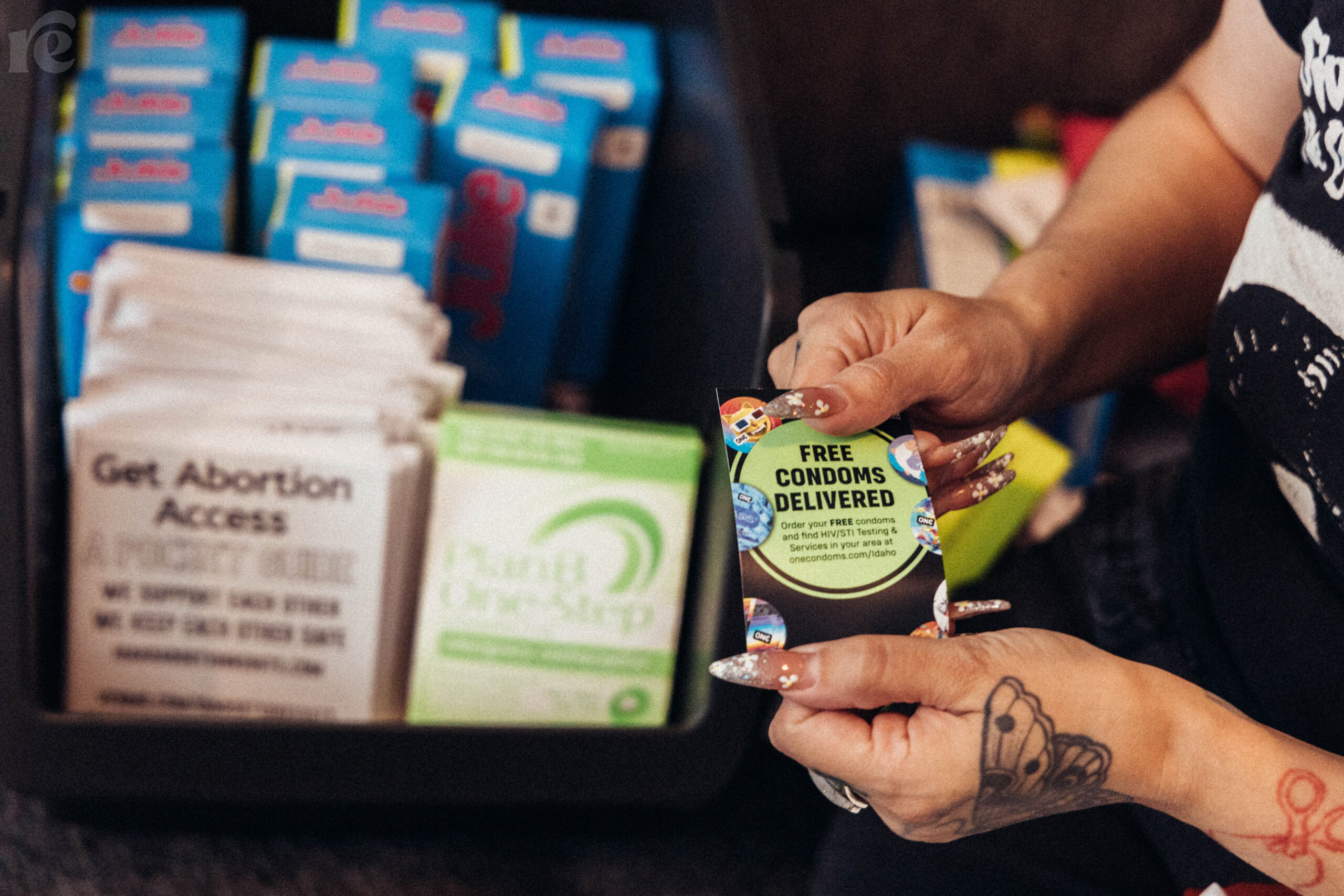
Days earlier, IAR founder Kimra Luna told me there are now more than two dozen of these boxes in businesses around the state—and that some of those businesses have experienced harassment as a result.
In one case, harassment of a local coffee shop in Nampa, a city just outside the capital, Boise, was initiated by state Sen. Brian Lenney. In a Facebook video, Lenney incorrectly referred to Plan B, a brand of emergency contraception, as “abortion pills.”
In an “alert” to followers, the Idaho Family Policy Center—a conservative Christian lobbying group whose president argues openly for Christian control of government—called emergency contraceptive pills “abortifacients” and falsely claimed they can “end a pregnancy after conception.” According to Luna, this resulted in the shop receiving a barrage of hateful messages.
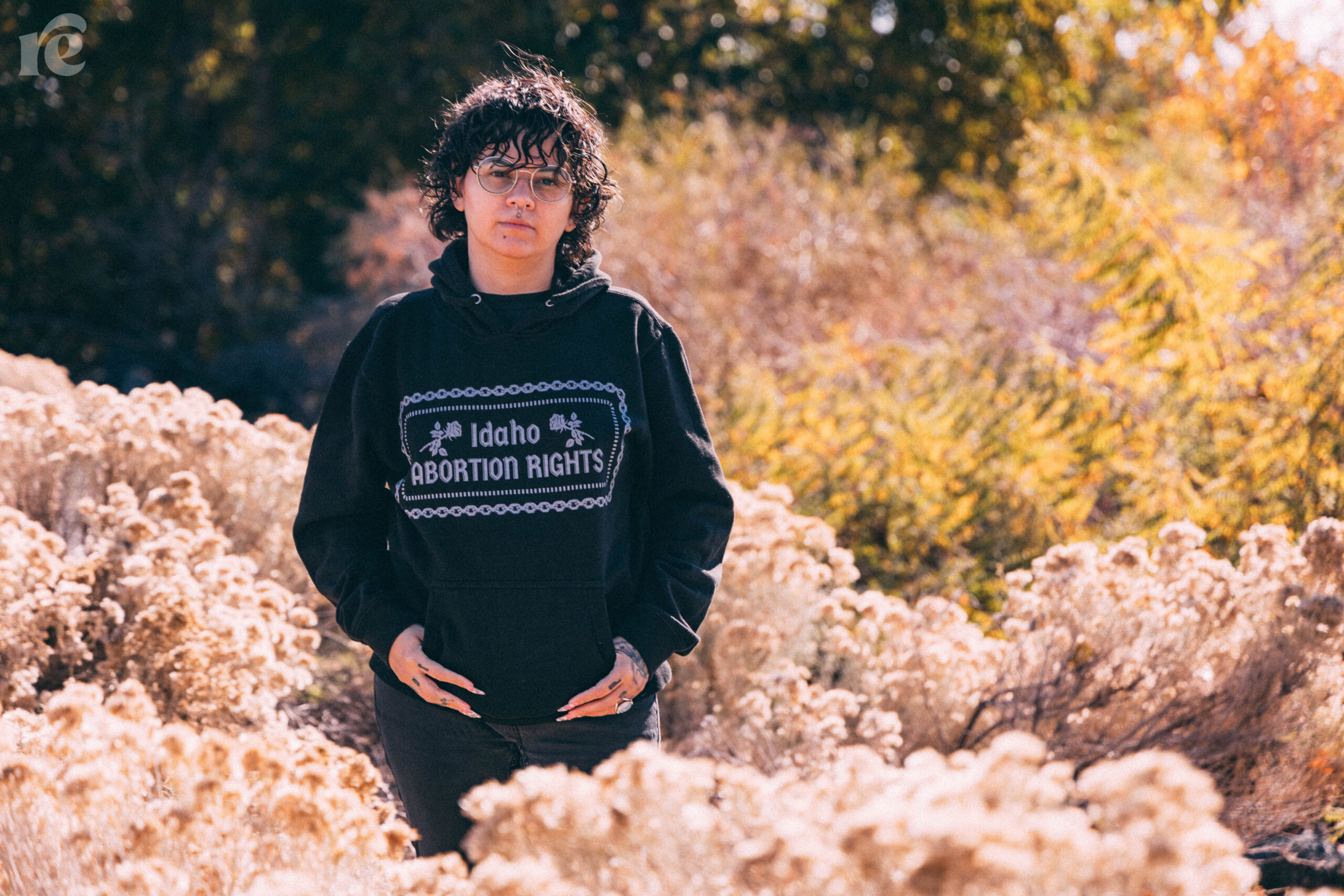
I asked Babayan if she’d experienced anything similar. There have been a few difficult moments, she said.
“I had a man who came in to do business with us, and he was very offended by us having a reproductive health box,” she said. “But that box is not there for him.”
“I’ll start the conversation by saying, ‘This is where I stand.’ I’m a mother by choice, for choice,” she continued. “We can quote scripture until we’re out of breath. I grew up in the church. I know lots of scripture. But at the end of this conversation, I hope we both can walk away wanting to live in a free society.”
On the whole, Babayan said, the response to the box has been positive, including from women who are very religious.
“They have their beliefs, their faith, but they’re also very glad to see access for women in our community,” she said. “They do not agree with what their male counterparts are deciding for them at the Capitol. They’re actually very upset about it, and they’ll voice that.”
The state of Idaho continues to argue that its total abortion ban, which has an exception only to prevent the death of the pregnant person, does not violate federal law, even though EMTALA requires hospitals to offer abortion care in a wider range of circumstances. In October, at least one pregnant woman was flown to Salt Lake City because doctors in Boise could not care for her when her water broke at 20 weeks. The conservative legal advocacy organization Alliance Defending Freedom is involved in the EMTALA fight and has asked the Supreme Court to weigh in.

In Coeur d’Alene, I spoke with Christa Hazel, a lifelong Republican who has been a prominent voice countering extremism within her party in recent years. She believes the abortion bans have gone too far, and said many of her friends—grandparents who fear for the safety of their pregnant granddaughters—feel the same.
“It shouldn’t be lost on us that people get hurt around this issue of abortion,” Hazel said. “People get riled up. They feel like there’s a moral imperative to protect unborn life. And I don’t want to step on anybody’s opinion. I’m adopted, but I also went to law school.”
“I believe abortion is an issue of the heart, not an issue that’s necessarily for government action. That’s really where I’m coming from,” she continued. “And I think there’s a lot of room for dialogue. But there should also be room for recognition that this law is treading on people, and it’s having unfair consequences.”

